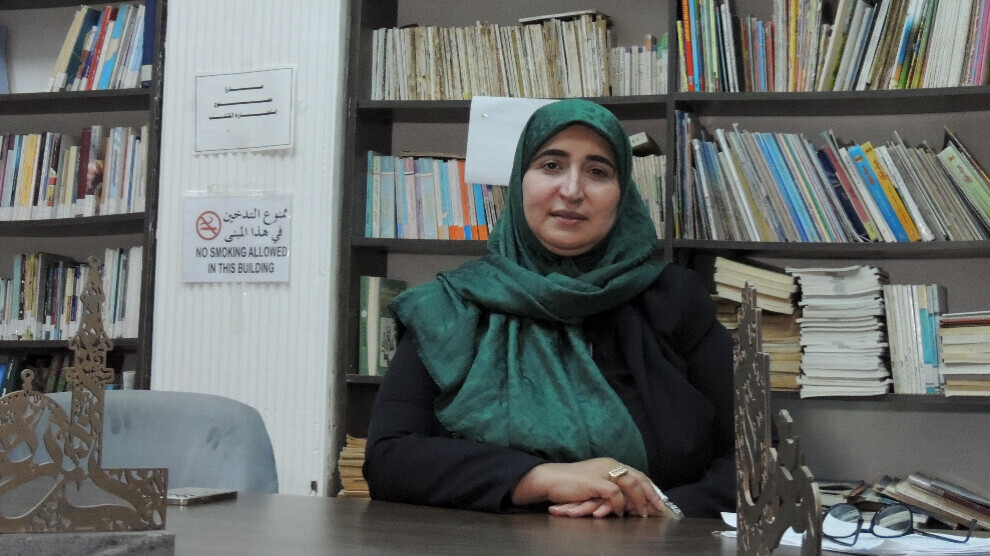Why women haven’t told history
Since the dawn of writing, history has been shaped by those with literacy and power—most often men. Patriarchal systems across civilizations granted men authority over leadership and knowledge, leaving women pushed to the margins.

IBTISAM AGHFIR
Benghazi – Despite their pivotal roles in revolutions, reforms, and preserving oral traditions, women’s names were rarely recorded—and when they were, it was usually in passing, confined to the margins of manuscripts and documents.
The dominance of patriarchy sidelined women, barring them from shaping the written memory of their societies. Dr. Amal Al-Masdour, historian, PhD holder, and faculty member at the Department of History, Faculty of Arts, University of Benghazi, stressed the urgent need to recognize this exclusion and rewrite history to restore balance.
She explained: “From the outset, the history we know today was written mostly by men. Social and political structures placed men in positions of power, while women were confined to domestic or marginal roles, preventing them from entering scholarly institutions—including writing and documentation. Naturally, history emerged from the perspective of those who held the pen: men.”
Patriarchy excluded women from recording history
According to Dr. Al-Masdor, this erasure was not always a deliberate conspiracy, but rather the cumulative result of a patriarchal order that regarded knowledge and writing as inherently male domains. Women were positioned as recipients rather than producers of knowledge. This exclusion extended beyond writing to education, property ownership, and political participation. Yet women were never absent from public life. They took part in uprisings, reforms, and the safeguarding of cultural heritage, but their contributions went undocumented because the tools of documentation were not in their hands.
She cited women who managed to leave their mark despite hostile conditions. In the 19th century, Lebanese writer Zaynab Fawwaz and Egyptian intellectual Aisha Taymour wrote extensively about women’s issues and their societies. In Libya, Zaynab Al-Nafzawi from the Nafusa Mountains established a boarding school for girls, while other women safeguarded knowledge and cultural traditions. These examples, preserved in manuscripts and biographies, she argued, call for deeper research to uncover and reassert their historical significance.
Dr. Al-Masdor emphasized that women’s absence from writing history distorted how they appeared in historical narratives. “In traditional accounts, women are depicted as secondary to men—defined through them, rather than in their own right. This produced a stereotype of women as emotional, irrational, or unfit for leadership—images that reflect the biases of male historians, not reality.”
Women’s narratives illuminate history
She stressed that when women tell history, they illuminate overlooked and marginalized perspectives, often focusing on daily life and individual experiences—what scholars call “history from below.” This approach does not rewrite history so much as broaden it, restoring balance to the narrative and offering a fuller picture beyond the male elite’s perspective.
Dr. Al-Masdor praised the growing role of female researchers and academics who revisit sources with a critical lens, seeking out silenced women’s voices and documenting unwritten female experiences. She urged them to help develop curricula that embrace diversity and gender equity, shaping a more just understanding for future generations.
Yet the challenges remain daunting: weak institutional support, scarce funding, persistent patriarchal attitudes in academia, and a lack of sources related to women—all of which make documentation complex and difficult. Despite this, she believes the determination of women researchers to overcome these barriers is what inspires hope for a fairer future.
Technology empowers women to reclaim history
She also highlighted the role of technology, describing it as a window for women to create their own narratives through digital platforms, blogs, podcasts, and documentaries. Unlike traditional channels, these platforms provide women with the freedom to tell their stories and reclaim their voices.
As for oral history, Dr. Al-Masdor noted that women have long been central in preserving collective memory—through storytelling, proverbs, songs, and accounts of daily life. Yet oral history is still treated as “unofficial” and less valuable than written records, a bias she described as another form of injustice that must be corrected.
Dr. Al-Masdor concluded: “We need to support researchers—women and men—in unearthing women’s narratives, whether in archives or through oral traditions. Educational and media institutions must also play their part. Building partnerships between universities and cultural centers could help create a more inclusive Libyan history, one that acknowledges the contributions of both men and women. But the first step is to admit that Libyan history requires a critical, objective re-reading—so it can be told as it should be, free from bias and exclusion.”
